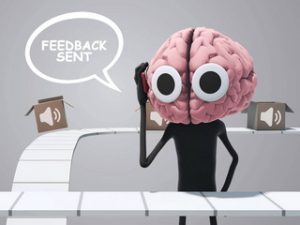Neurofeedback
There is no definitive data or published case studies on the effectiveness of neurofeedback, but there are some highly discussed success stories. For every success story, there are many other reports of individuals where neurofeedback had no effect on their misophonia. Dr. Randall Lyle of Cedar Rapids, Iowa is a highly skilled neurofeedback practitioner, and he has several cases of very significant reduction in misophonic symptoms. These cases generally require anywhere from 40-100, or even more, neurofeedback sessions, so it is a slow brain-change process. Because this is a slow process, it seems possible that neurofeedback may actually address misophonia indirectly.
significant reduction in misophonic symptoms. These cases generally require anywhere from 40-100, or even more, neurofeedback sessions, so it is a slow brain-change process. Because this is a slow process, it seems possible that neurofeedback may actually address misophonia indirectly.
Neurofeedback is widely reported to improve many conditions that would improve general health and well-being. Dr. Lyle writes that neurofeedback can facilitate healing of depression, anxiety, stress, chronic fatigue, pain, migraines, posttraumatic stress disorder (PTSD), obsessive thoughts, and compulsions.[i] Reducing any of these conditions would likely improve general wellness, and improved wellness is associated with reduction in misophonic symptoms.
Considering the multiple-step view of misophonia presented previously, if neurofeedback makes a person less reactive to aversive stimuli, then the first effect would be to reduce the emotional response. This could allow a weakening of the conditioned misophonic physical reflex, which seems to be strengthened because of the overall misophonic response to triggers (and the repeated occurrence of triggers). I mentioned Connor, the Marine with PTSD, who developed misophonia in Afghanistan. He virtually eliminated his misophonia by practicing progressive muscle relaxation and responding to triggers with “no threat, but thank you.” The muscle relaxation improved his sleep and reduced his PTSD symptoms. The improved wellness was likely a large factor in this immediate reduction in misophonia, and the sustained, low emotion responses could have allowed his conditioned misophonia reflex to continually weaken and extinguish (go away completely).
The bottom line is that neurofeedback has been demonstrated to improve a person’s health and well-being, so this treatment could be very beneficial to you if you have general health problems, and resolving health problems would likely reduce your misophonia symptoms.
